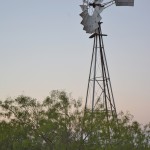Private water well screenings set for San Jacinto, Liberty, Chambers counties
Contact: John Smith, 979-845-2761, [email protected]
COLLEGE STATION — The Texas Well Owner Network will present water well screenings in July and August in San Jacinto, Liberty and Chambers counties to give residents the opportunity to have their well water tested.

The screenings are presented by the Texas A&M AgriLife Extension Service offices in the counties in collaboration with the Texas Water Resources Institute.
“Private water wells should be tested annually,” said John Smith, AgriLife Extension program specialist, College Station.
He said those submitting samples should use only sampling bags from their respective AgriLife Extension office and follow instructions to ensure accurate results. The cost is $10 per sample and samples must be turned in by 10 a.m. the day of the screening.
The screenings will be from 8:30-10 a.m. on the following dates and locations:
– July 31 at the AgriLife Extension office for San Jacinto County, 11 Carrier Ave., Shepherd. A meeting explaining screening results will be at6 p.m. Aug. 1 at the same location.
– Aug.1 at the AgriLife Extension office for Liberty County, 501 Palmer Ave. in Liberty, or at McLeod Park, 10717 Langston Drive, Mont Belvieu. A follow-up meeting to explain screening results will be at 6 p.m. Aug. 2 at McLeod Park.
– Aug. 2 at the AgriLife Extension office for Chambers County, 295 White Memorial Park Road, Anahuac. A follow-up meeting to explain screening results will be at 6 p.m. Aug. 3 at the AgriLife Extension office.
Samples will be screened for common contaminants, including fecal coliform bacteria, nitrates and high salinity.
Smith said the presence of fecal coliform bacteria in water indicates waste from humans or warm-blooded animals may have contaminated the water. Water contaminated with fecal coliform bacteria is more likely to also have pathogens present that can cause diarrhea, cramps, nausea or other symptoms.
“Water with nitrate nitrogen at levels of 10 parts per million is considered unsafe for human consumption,” Smith said. “These nitrate levels above 10 parts per million can disrupt the ability of blood to carry oxygen throughout the body, resulting in a condition called methemoglobinemia. Infants less than 6 months of age and young livestock are most at risk.”
Salinity as measured by total dissolved solids will also be determined for each sample. Water with high levels may leave deposits and have a salty taste, and using water with high levels for irrigation may damage soil or plants.
Smith said it is extremely important for those submitting samples to be at the meeting to receive results, learn corrective measures for identified problems and better understand private well management.
For more information for the San Jacinto County screening, call 936-628-6407; for the Liberty County screening, call 936-334-3230; for the Chamber County screening, call 409-374-2123.
To learn more about programs offered through the Texas Well Owner Network or to find additional publications and resources, go to http://twon.tamu.edu.
Support for the Texas Well Owner Network program is provided through a nonpoint source grant from the Texas State Soil and Water Conservation Board.


